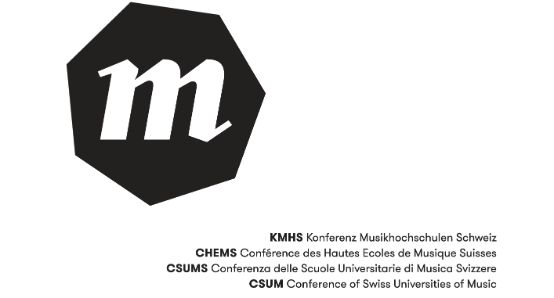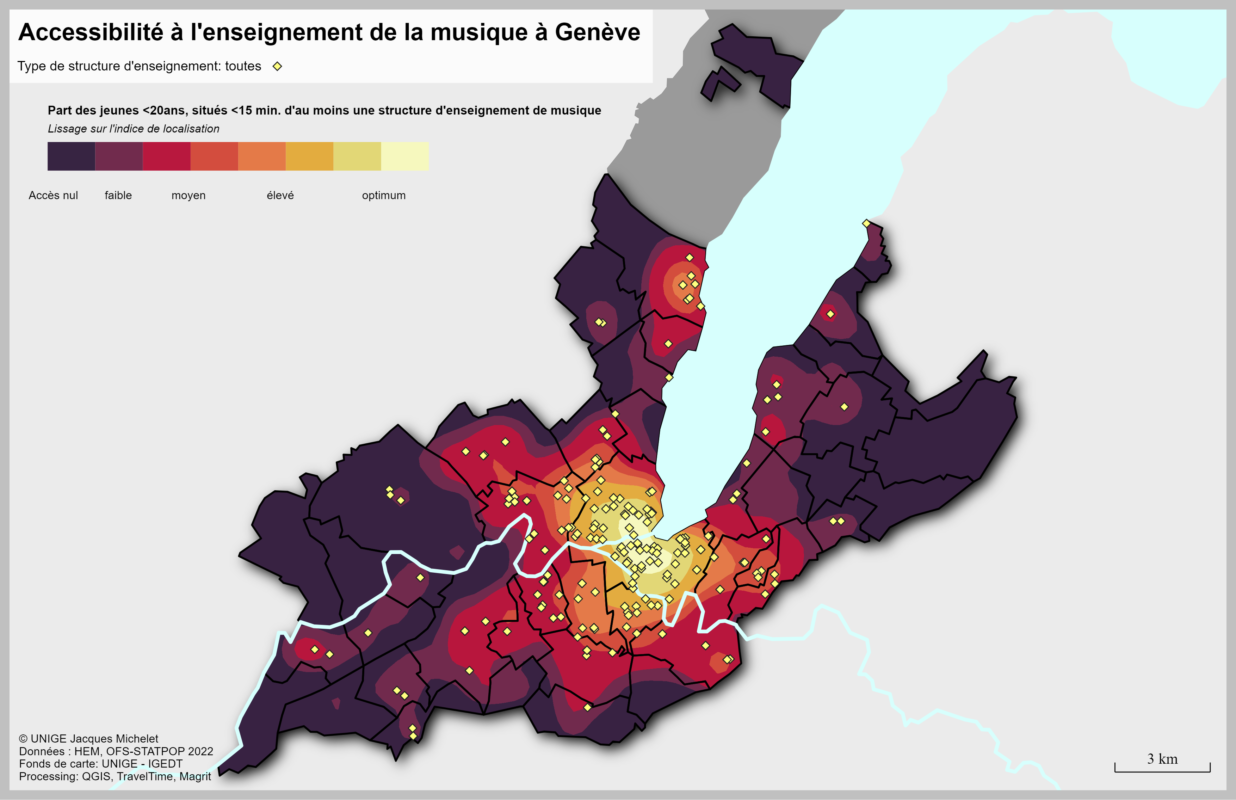Lockdown Learnings

Die vergangenen Wochen stellten die Schweizer Musik-hochschulen vor grosse Herausforderungen. Nachdem nun die ersten Lockerungsmassnahmen beschlossen wurden, berichten drei Institute über ihre Erfahrungen mit dem digitalen Unterricht.
Lorenzo Micheli - Il COVID-19 si è abbattuto come un ciclone sulla rete globale dell'educazione, costringendoci a una rivoluzione immediata e radicale. Nella sua enorme drammaticità, però, la chiusura forzata di scuole e Università ha incentivato un processo che era in atto da tempo, dandogli una spinta senza precedenti. Da sperimentazione limitata, l'e-Learning si è imposto come frontiera ultima e unica dell'insegnamento anche in ambito musicale, persino per quelle aree della didattica (ad esempio la performance) in cui era tradizionalmente considerato inattuabile.
La didattica ai tempi della pandemia ha rappresentato una prova notevole di flessibilità per tutto il Conservatorio della Svizzera italiana, tanto per gli studenti quanto per i docenti e lo staff amministrativo. La sfida più grande si è rivelata fin da subito quella di mantenere al centro della riflessione gli obiettivi formativi, ormai privati dei loro consueti "contenitori" formali e rituali. Questo ha condotto a una revisione quasi totale dei corsi in funzione dei contenuti. Le variegate declinazioni della didattica musicale (lezioni collettive/lezioni individuali, materie pratiche/materie teoriche) hanno reso impossibile l'adozione di unico formato, e favorito piuttosto una ricerca creativa in cui docenti e studenti hanno giocato un ruolo paritario nella scelta delle modalità di apprendimento e della piattaforma da utilizzare. Per le lezioni individuali e di gruppo sono stati sperimentati servizi di video conferenza remota come Teams, Zoom, Google Meet, Webex Meetings, software per chiamate VoIP, come Skype o What's App, e sistemi più "tradizionali" come l'uso di registrazioni audio e video. I corsi teorici, forti di un'esperienza già consolidata negli anni passati, hanno sfruttato per la condivisione dei materiali didattici le potenzialità di iCorsithe piattaforma e-Learning adottata dall'USI e dalla SUPSI.
Nell'esperienza di questi mesi non mancano le ombre, che abbiamo cercato di intercettare e raccogliere dalla viva voce degli studenti (anche attraverso un questionario ad hoc). In molti casi il passaggio all'e-Learning ha portato a un aggravio considerevole del lavoro individuale. La percezione di ogni singolo studente è poi condizionata (e a volte falsata) dalla sua situazione personale, logistica, economica, e lo stesso percorso di apprendimento rischia di avere un'efficacia diversa quando si lega a fattori psicologici (come quelli causati dall'isolamento) o tecnologici (il digital divide preclude di fatto la frequenza dei corsi a diversi studenti). Le attività di insieme sono sospese fino a nuovo ordine, e passata l'emergenza dovremo fare uno sforzo per ricordarci che la pratica (e la fruizione) della musica sono essenzialmente momenti collettivi e sociali. Last but not leastla verifica dell'apprendimento rimane un capitolo ancora da scrivere, e dal finale tutt'altro che scontato.
Un vero e proprio bilancio sarà possibile solo a posteriori. Tuttavia, a fronte di questi problemi, appare chiaro che le pratiche di e-Learning stimolano forme personali di elaborazione dei contenuti, sollecitano l'autonomia individuale e consentono una maggiore integrazione tra strumenti bibliografici e strumenti tecnologici, oltre a presentare qualità interessanti di sostenibilità ambientale e accessibilità. L'emergenza ha richiesto un'ottimizzazione delle risorse interne del Conservatorio e una gestione fluida e pragmatica dei processi decisionali (compresi quelli mirati a fornire un sostegno economico agli studenti in difficoltà) che potranno rivelarsi preziosi in futuro. Alcune delle forme di e-Learning introdotte in questi mesi potrebbero essere mantenute, laddove esse possono garantire continuità e facilitazione nell'apprendimento, o dove permettono l'interazione con un network educativo più ampio di quello abituale. Le piattaforme come iCorsi, infine, hanno le carte in regola per diventare veri e propri "hub" di conoscenze condivise.
Lorenzo Micheli
... è docente di chitarra al Conservatorio della Svizzera italiana, co-responsabile della formazione e co-responsabile dell'area performance alla Scuola Universitaria di Musica.
Michael Eidenbenz - Aus der Krise soll man bekanntlich lernen. Und so hat natürlich auch die ZHdK Arbeitsgruppen installiert, welche die digitalen Lockdown-Erfahrungen methodisch korrekt evaluieren und dereinst in produktive Empfehlungen umgiessen werden. Hier gibt es einstweilen nur subjektive und fragmentarische Impression eines Beobachters aus dem Home-Office.
Wir haben also gelernt. Zum Beispiel: Aufnahmeprüfungen sind online möglich, aller bisherigen Skepsis zum Trotz. Die Quote der Fehlentscheide ist kaum höher als bei der Begegnung vor Ort, und es lassen sich viele sinnlose Flugreisen sparen. - Wir haben gelernt, wie der Online-Unterricht zu erweiterter didaktischer Reflexion zwingt. Er erfordert eine höhere Präzision, wird demokratischer, die Ansprüche der Studierenden wachsen. Es wurde viel alter Schulstubenstaub weggewischt. - Wir konnten feststellen, wie nah und selbstverständlich die digitale Welt zuvor schon gewesen war. Unglaublich schnell wurde der digitale Schutzraum bezogen, als die reale Welt begann, gefährlich zu werden. Hunderte von Zoom-Lizenzen waren vorausschauend besorgt worden, die E-Learning-Teams stellten Tutorials online und offerierten Plattformen für den Erfahrungsaustausch. Dozierende und Studierende installierten ihre Streaming-Accounts, und wie im Rest der Welt konnte nach wenigen Tagen das Universum der Zoom-, Skype- und Facetime-Ruckelbilder Einzug halten. Es gab wenig Opposition, dafür Erstaunen: Wie leicht diese Technologie plötzlich fiel, wie problemlos auch angebliche Digital Dummies mit den Apps zurande kamen, wie Latenz- und Klangkompressionsprobleme zu lösen waren - und: wie vielen Leuten man plötzlich begegnete, die früher sel-ten anzutreffen waren. Es waren ja sowieso alle zuhause und erreichbar, und der digitale Raum kennt keine Distanzen. - Wir haben generell gelernt, dass vermeintlich behäbige Institutionen wie Kunsthochschulen erstaunlich alert sein können. Innert Tagen waren jedenfalls auch an der ZHdK die Notfallstäbe installiert, wurden Kommunikations- und Entscheidungswege definiert, waren zentrale Prozesse geklärt und organisiert wie etwa die Durchführung von Online-Prüfungen samt Anpassung der verbindlichen Reglemente. Und für die absehbaren Finanzkrisen der Studierenden wurden grosszügige Mittel aus der hochschuleigenen Stiftung bereitgestellt. Es herrschte eine eigentliche Problembewältigungseuphorie.
Wir haben darauf die Verfeinerungen beobachtet, den zunehmend gekonnten Umgang mit den Workplaces, die erfolgreichen Versuche, Klassenstunden, Podien und ganze Konzerte zu streamen. Wir haben gelernt, wie interdisziplinär Online-Musizieren ist, wie wichtig die Inszenierung dabei wird. Und wir haben zur Kenntnis nehmen müssen, dass die Zahl der Insta-Klicks dank origineller Beiträge z.B. auf #zhdkathome um ein Vielfaches höher lag als jene der analogen Konzertbesuche.
Aber wir haben auch erfahren, was alles nicht funktioniert: Orchester, Chor, Kammermusik, Proben, spontanes Jammen, Tanz und Bewegung - das echte Zusammenspiel ist nicht möglich. Und Fragen kamen auf: Wenn eine Hauptsache des Musizierens nicht geht: Bleibt das Ganze dann nicht ein grosses "Als ob"? Und: Hatten wir nicht einst einen Exzellenzanspruch, hörten minutiös auf Klangschattierungen, strebten nach perfekter Akustik, spürten die performativen Vibes und minimalste interpretatorische Finesse. Jetzt sind wir zufrieden, wenn das Bluetooth-Micro die Verbindung nicht verliert und freuen uns an mehrstimmigen A-Cappella-Apps. Kannten wir nicht die Qualität, ein Werk ganz und konzentriert zu verfolgen, statt nur kurz mal eben in Live-Streams reinzuhören? Bleibt das so? War der Digitalisierungsschub des Lockdowns nur ein Schuss vor den Bug, oder wurde das konzertante 19. Jahrhundert soeben endgültig beerdigt? Wird das Musikleben im Digitalen je eine ähnliche Exzellenz erarbeiten, so wie es die Popkultur seit längerem schon vormacht? Und die ewige Frage der Bildungsinstitutionen: Wen bilden wir wofür in Zukunft aus?
Sie bleibt noch unbeantwortet. Aber es sei vor der Illusion digitaler Bequemlichkeit gewarnt: Kunst ist Risiko. Sie lebt in der gefährlichen Welt. Im keimfreien Schutzraum verkümmert sie.
Michael Eidenbenz
... ist Direktor des Departements Musik an der Zürcher Hochschule der Künste (ZHdK).
MvO - Béatrice Zawodnik is teaching coordinator at the Haute École de Musique de Genève. She answers our questions.
Béatrice Zawodnik, when did you realize that the corona crisis was going to be a major challenge?
From the moment we learned that face-to-face classes would no longer be possible due to confinement, and that all public performances - an essential part of a student musician's practical training - would be cancelled.
In terms of e-learning, were you prepared for such a situation?
Even though we equipped ourselves two years ago with software specifically for remote music practice, we were not prepared for such a situation. But teachers of all disciplines have reacted extremely quickly to find and propose alternative distance teaching solutions, and creativity has been the order of the day, whatever the generation concerned (young teachers, but also teachers just a few months away from retirement...).
What has been your Haute Ecole's experience of e-learning in recent months?
Various forms of teaching were proposed: group lessons ex cathedra, semi-collective lessons, individual instrumental and vocal lessons on Teams or Zoom, reinforced individualized follow-up, sending of student performances/works by e-mail or video and feedback from teachers, specific pre-recorded lectures/seminars, followed by remote debriefing sessions, "minus one" recordings prepared by coaches, etc. Sharing of best practices between HEM teachers, virtual meetings to share problems and propose joint solutions.
The other major challenge during this period when everyone was isolated at home - be it administrative and technical staff, teaching and research staff or students - was for the management to maintain a link with every player at the EMH: Internal communication was strengthened, regular contact was established with the student association, and department heads, supported by their assistants, took care to contact all the professors and students within their remit to ensure that everyone was in good academic health, and thus able to identify fragile situations and provide specific support, financial or otherwise. Assessment and validation procedures have been adapted to the distance learning context, without lowering the requirements for skills acquisition, so as to guarantee students the value of the qualifications they receive.
What do you see as the main advantages and disadvantages?
The main disadvantage is, of course, the degradation of all teaching linked to musical practice, as well as the impossibility of carrying out all ensemble music projects. What's more, in the unanimous opinion of all the main subject teachers, there's no substitute for face-to-face instrument/voice lessons: many parameters cannot be verified via screens, such as sound quality, nuance finesse, sound or voice projection, posture and breathing, and so on. On the other hand, many students find themselves in a delicate situation when it comes to practicing their instrument/voice intensively at home: problems with neighbors or with their instrument.
A definite advantage - which could lead to interesting institutional reflection outside the COVID context - would be to be able to record certain ex cathedra theory courses, specific seminars or conferences that would lend themselves to this, so as to enable students to have access to this content outside the regular course timetable, regularly colliding with punctual activities that punctuate the academic year. But this forced experience of living music at a distance can never replace the joy of playing together and for an audience.
How did students react to the changes and how did they participate? Were there any direct contributions from students?
A lot of creativity on the part of the HEM professors, but also on the part of the students. The students reacted quite well to the changes, though of course they had legitimate concerns about the new evaluation and validation methods. Communication played a crucial role in enabling them to understand the decisions taken and to take account of their difficulties. The students produced high-quality, original and humorous collective videos, involving a large number of them and fostering the feeling of being part of a united community, despite the distance imposed by confinement.








